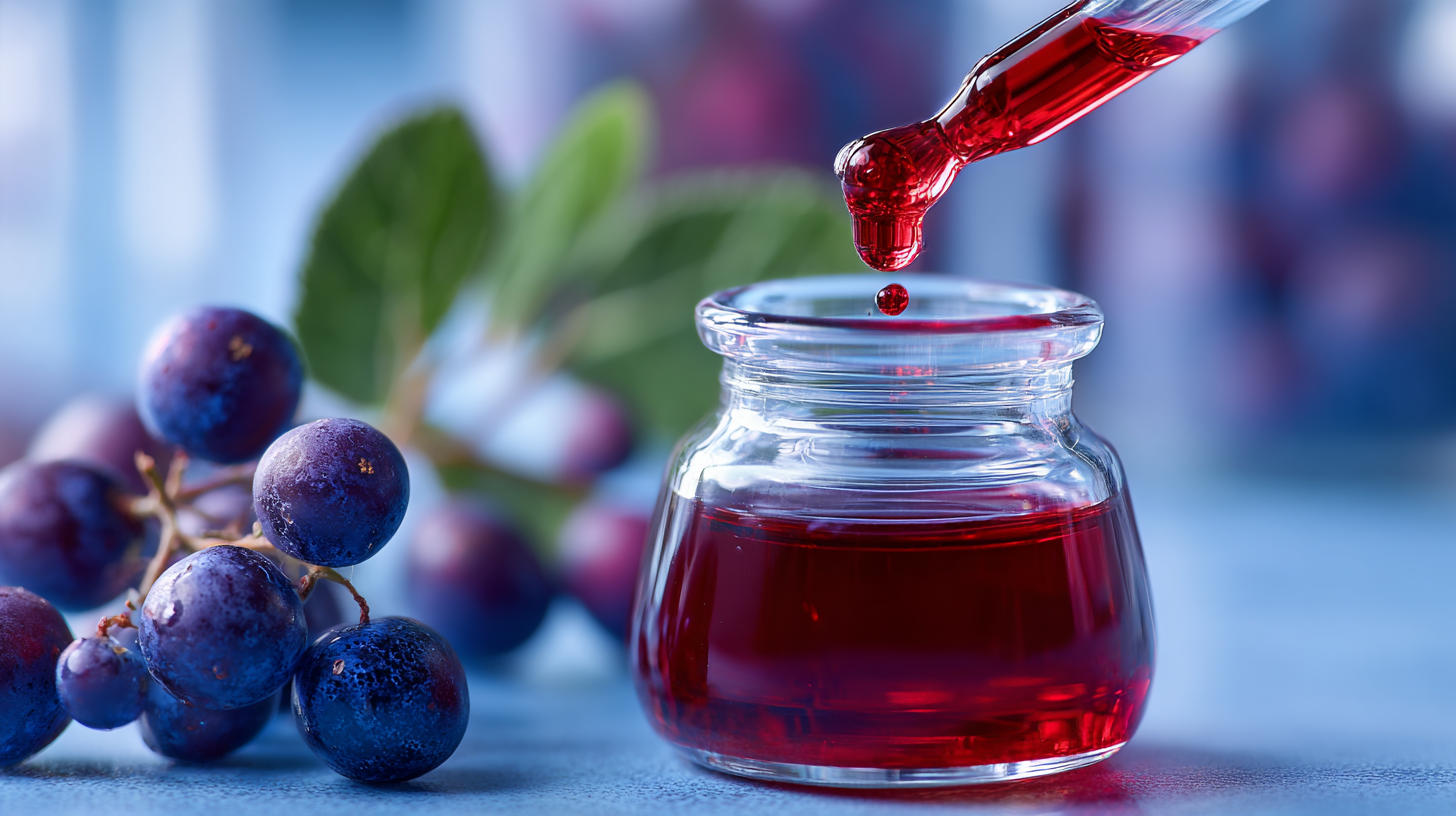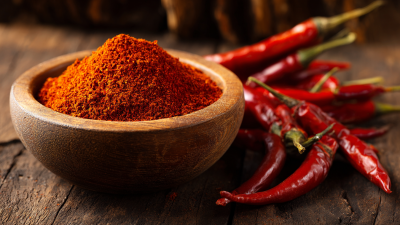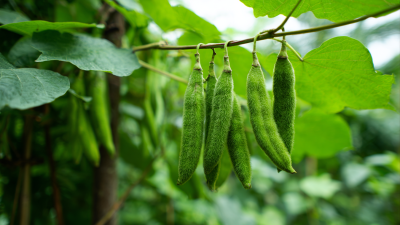Recent studies have illuminated the potent health benefits of Grape Skin Extract Resveratrol, a natural compound predominantly found in red wine and grape skins. A report by the National Institutes of Health indicates that resveratrol possesses antioxidant properties that can protect against oxidative stress and inflammation, both of which are linked to chronic diseases such as cancer and cardiovascular disorders. Furthermore, research published in the Journal of Nutritional Biochemistry reveals that resveratrol may enhance longevity by activating certain genes associated with cellular repair and survival. As health-conscious consumers increasingly seek natural supplements, the global resveratrol market is projected to reach approximately $1.3 billion by 2025, highlighting the growing interest in this potent compound. This article aims to unlock the secrets of Grape Skin Extract Resveratrol, exploring its myriad health benefits and various applications in modern wellness practices.
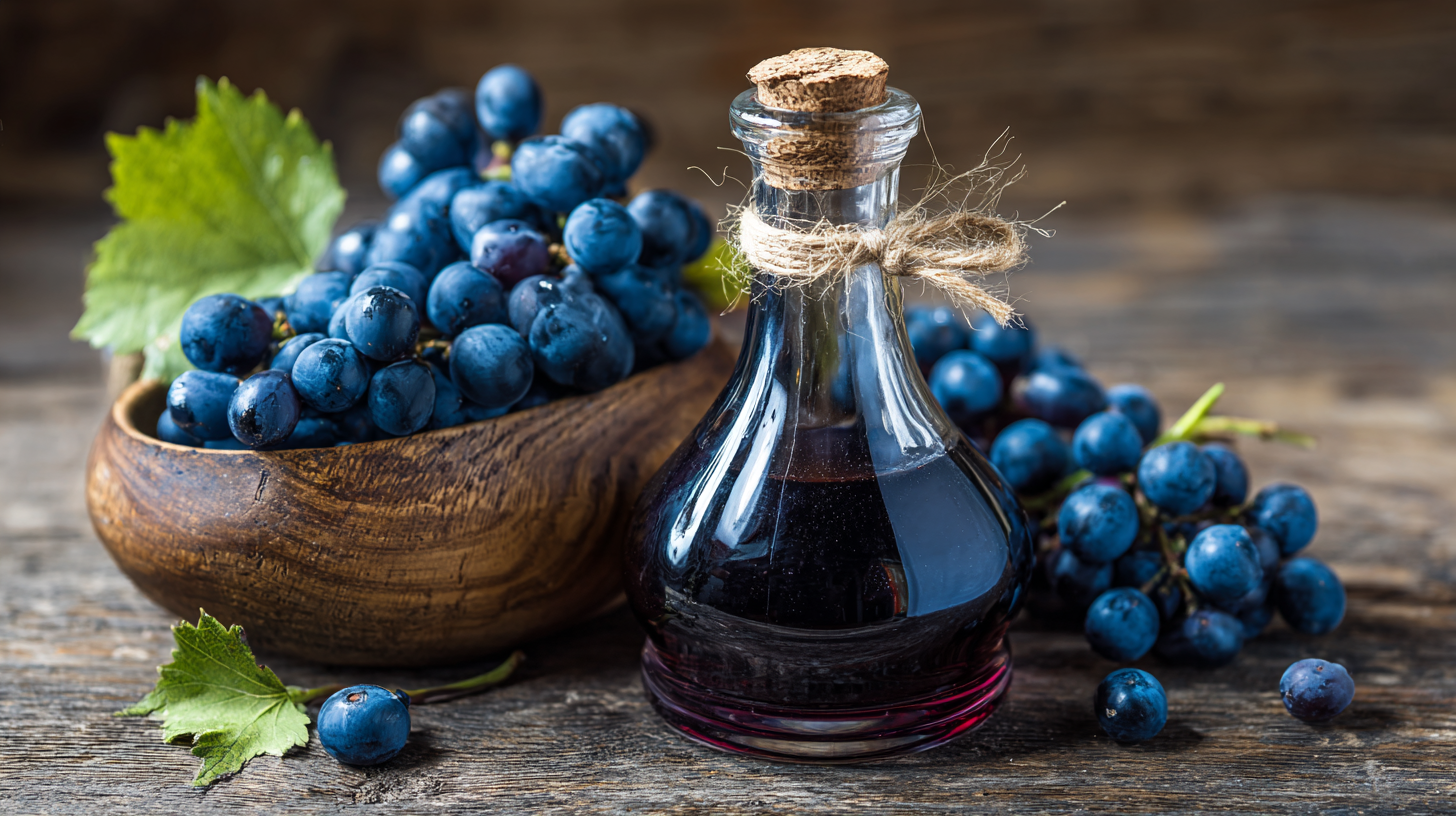
Resveratrol, a potent compound found in grape skin extract, has been gaining recognition for its numerous health benefits. This natural nutraceutical mimics the effects of caloric restriction, making it a compelling subject in the realm of anti-aging research. Clinical trials have highlighted resveratrol's anti-inflammatory properties and its potential role in enhancing cardiovascular health and metabolic efficiency. Its unique ability to promote cognitive preservation is also notable, suggesting that this grape-derived antioxidant offers a multifaceted approach to wellbeing.
Recent studies underline resveratrol's efficacy in supporting overall health. Grape extracts, rich in bioactive phenolic compounds, have been linked to various therapeutic effects, from regulating blood sugar levels to boosting collagen production. As awareness of these benefits grows, the popularity of resveratrol supplements continues to rise, providing an accessible means for individuals seeking to harness the restorative power of grape skin extract. Furthermore, initiatives like university-led research into the effects of red wine consumption reflect a broader interest in exploring resveratrol's potential, setting the stage for future advancements in dietary supplements and natural health solutions.
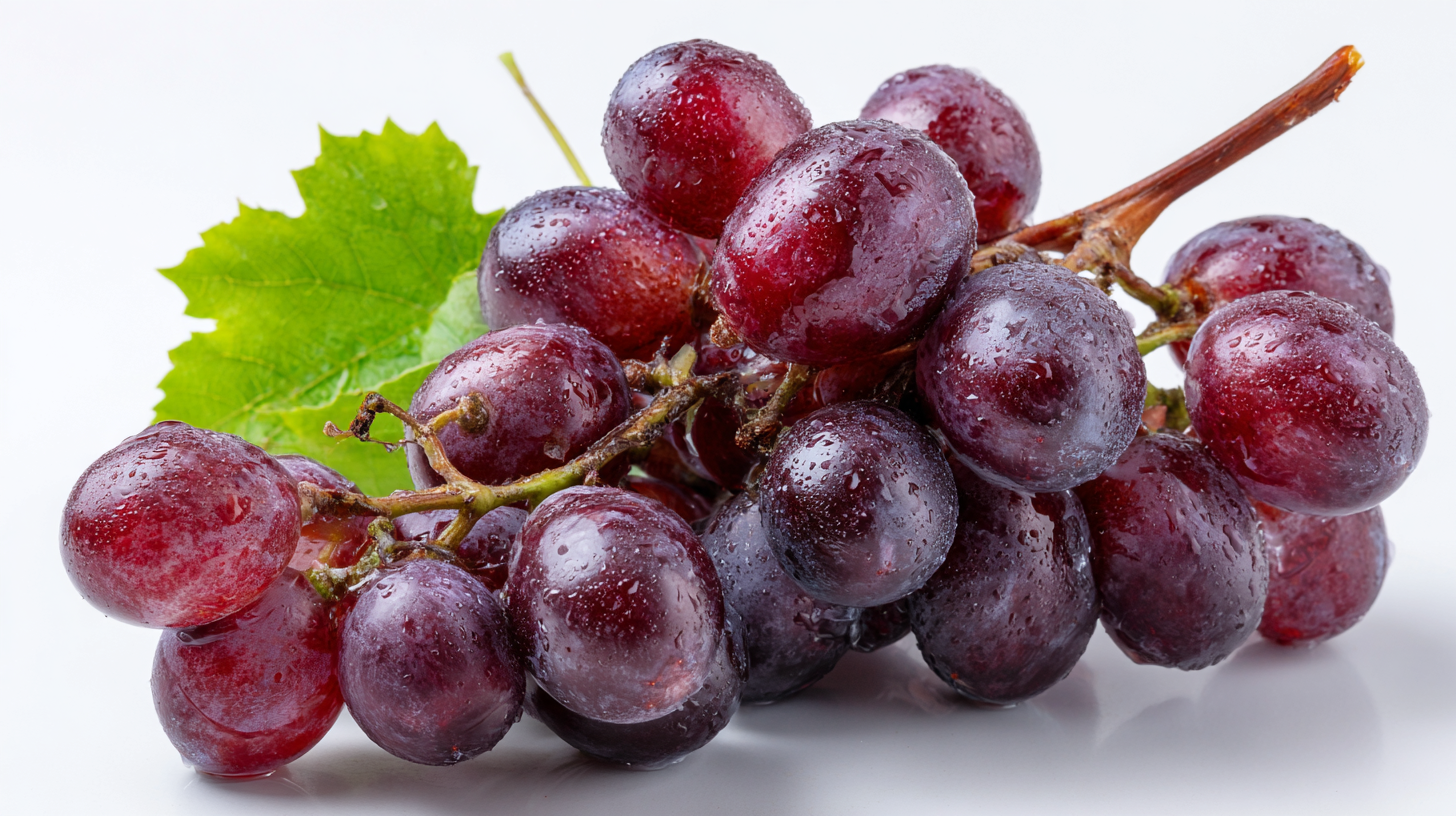
Resveratrol, a polyphenolic compound predominantly found in grape skins, has gained attention for its wide array of health benefits. The mechanisms of action through which resveratrol exerts its positive effects are multifaceted. Primarily, it functions as a potent antioxidant, neutralizing harmful free radicals that contribute to oxidative stress and cellular damage. This antioxidant capacity plays a crucial role in reducing the risk of chronic diseases such as cardiovascular illness and cancer.
In addition to its antioxidant properties, resveratrol is known to activate certain genes associated with longevity and metabolic health. It activates sirtuins, a family of proteins that regulate cellular health, energy metabolism, and aging processes. By enhancing mitochondrial function and promoting the efficient use of energy, resveratrol supports overall vitality. Furthermore, its anti-inflammatory properties help modulate inflammatory pathways, thereby protecting against conditions like arthritis and neurodegenerative disorders. These scientific insights into resveratrol's mechanisms highlight its potential as a powerful ally in promoting health and longevity.
| Health Benefit | Mechanism of Action | Sources | Recommended Dosage | Potential Side Effects |
|---|---|---|---|---|
| Antioxidant Activity | Scavenges free radicals, reducing oxidative stress | Red wine, grapes, peanuts, berries | 150-500 mg per day | Gastrointestinal upset, headache |
| Cardiovascular Health | Improves endothelial function, reduces LDL cholesterol | Grape juice, dark chocolate, red wine | 100-300 mg per day | Allergic reactions in sensitive individuals |
| Anti-inflammatory Effects | Inhibits inflammatory pathways and cytokines | Grapes, red wine, supplements | 200-600 mg per day | Potential interaction with blood thinners |
| Neuroprotective Properties | Protects neurons from damage, enhances cognitive function | Grapes, red wine, dietary supplements | 100-400 mg per day | May cause dizziness or nausea in high doses |
| Weight Management | Inhibits fat cell formation and promotes fat oxidation | Wine, grapes, resveratrol supplements | 150-500 mg per day | Possible digestive issues |
Resveratrol, a powerful antioxidant found in grape skin extract, has garnered significant attention for its impressive health benefits. One of its most celebrated properties is its ability to promote heart health. Research indicates that resveratrol can help reduce inflammation, lower blood pressure, and improve cholesterol levels, ultimately leading to a decreased risk of heart disease. By enhancing endothelial function and supporting blood vessel dilatation, resveratrol plays a vital role in maintaining cardiovascular wellness.
In addition to its cardiovascular benefits, resveratrol is also recognized for its anti-aging properties. Studies suggest that it may help in reducing the effects of oxidative stress, a key factor in aging. Resveratrol has been linked to cellular longevity by activating certain genes associated with longevity, such as sirtuins. This action can lead to improved skin health, increased elasticity, and a more youthful appearance. Ultimately, incorporating resveratrol-rich foods or supplements into one's diet can provide multifaceted health benefits, making it a noteworthy addition for those seeking to enhance their overall well-being.
Resveratrol, a natural compound found in grape skins, has garnered attention for its potential health benefits. For those looking to incorporate this powerful antioxidant into their diet, several practical uses can be considered. Supplements are widely available and provide a concentrated dose of resveratrol, making them a convenient option for individuals seeking specific health benefits without altering their diet significantly.
Additionally, incorporating foods rich in resveratrol can be an enjoyable way to boost intake. Red wine is well-known for its resveratrol content, but other sources include berries, peanuts, and dark chocolate. It’s advisable to consume these foods as part of a balanced diet to maximize health benefits. For dosage, while there is no established daily recommendation, research suggests that around 100-500 mg of resveratrol per day may be effective for promoting cardiovascular health and offering anti-inflammatory properties. However, individuals should consult healthcare providers before beginning any supplementation regimen to ensure safety and appropriateness based on personal health conditions.
Research on grape skin extract and its key component, resveratrol, is gaining momentum in the scientific community, with numerous studies ongoing to uncover its potential health benefits. Future research is poised to delve deeper into how resveratrol can mitigate age-related diseases, enhance cardiovascular health, and improve metabolic functions. Innovative methodologies, such as advanced genetic analysis and clinical trials, are expected to shed light on the specific mechanisms through which resveratrol exerts its effects.
Moreover, as the demand for natural health products skyrockets, researchers are investigating the synergistic effects of resveratrol with other phytochemicals found in grapes and other fruits. Understanding these interactions could lead to the development of more potent formulations that maximize the health benefits of grape skin extract. Additionally, exploration into novel delivery systems might enhance the bioavailability of resveratrol, making its therapeutic potential more accessible to consumers. Future studies will likely focus not only on the health implications but also on sustainable sourcing and production methods, ensuring that the extraction processes align with environmental conservation efforts.
